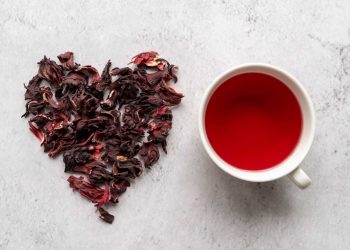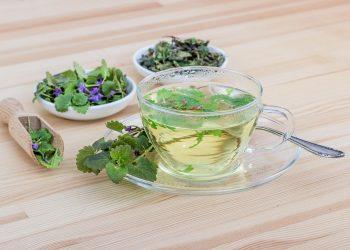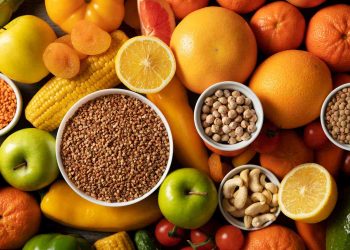Did you know that something as simple as a cup of tea could give your metabolism a little boost? While many of us reach for coffee first thing in the morning, tea deserves a spot in the spotlight, too. Not only is it soothing and delicious, but certain types can also help rev up your metabolism. So, let’s dive into five teas that can supercharge your metabolism naturally, and see how they work their magic.
1. Green Tea
Why It Works
Green tea is often hailed as a metabolism booster, and for good reason. Packed with antioxidants known as catechins, particularly epigallocatechin gallate (EGCG), green tea can enhance metabolic rate and fat oxidation. Some studies suggest that drinking green tea can increase calorie burning by 3-4% over a 24-hour period (Hursel et al., 2009).
Pros and Cons
Pros:
- Rich in Antioxidants: Helps combat oxidative stress.
- May Aid Weight Loss: Some studies indicate that it can lead to weight loss and fat reduction.
Cons:
- Caffeine Sensitivity: If you’re sensitive to caffeine, green tea can cause jitters or anxiety.
- Taste Preferences: Not everyone enjoys the grassy flavor of green tea, but there are many blends available.
Personal Takeaway
I’ve noticed that starting my day with green tea instead of coffee gives me a more stable energy boost. Plus, it feels like a gentle way to wake up my metabolism without the caffeine crash later.
2. Oolong Tea
Why It Works
Oolong tea is a partially fermented tea that falls somewhere between green and black tea. It’s rich in polyphenols, which may help to improve fat metabolism. Research indicates that oolong tea can increase metabolic rate by up to 10% for a few hours (Hsu et al., 2006).
Pros and Cons
Pros:
- Flavor Variety: Oolong offers a range of flavors, from floral to toasty, making it versatile for different palates.
- May Reduce Fat Storage: Some studies suggest it may help prevent the storage of fat.
Cons:
- Caffeine Levels: Oolong contains caffeine, which might not be suitable for everyone.
- Preparation Time: It typically requires a bit more attention during brewing to achieve the best flavor.
Personal Takeaway
I love sipping on oolong in the afternoon. It feels like a nice treat and helps me avoid that post-lunch slump. Plus, the variety of flavors keeps things interesting.
3. Black Tea
Why It Works
Black tea is fully oxidized, giving it a robust flavor and a higher caffeine content compared to its green and oolong counterparts. The flavonoids in black tea can help enhance fat metabolism and may help reduce body weight (Zhang et al., 2014).
Pros and Cons
Pros:
- Robust Flavor: Perfect for those who prefer a stronger tea.
- May Lower Blood Pressure: Some research suggests black tea can have cardiovascular benefits.
Cons:
- Higher Caffeine: If you’re sensitive to caffeine, you might want to limit your intake.
- Tannins: Can cause digestive discomfort in some individuals when consumed in excess.
Personal Takeaway
Black tea has become my go-to for an afternoon pick-me-up. It feels like a cozy hug in a cup, and I appreciate its bold flavor.
4. White Tea
Why It Works
White tea is the least processed of all tea types, retaining a high amount of antioxidants. Some studies suggest that the catechins in white tea can help inhibit fat cell formation and promote fat breakdown (Zhang et al., 2010).
Pros and Cons
Pros:
- Delicate Flavor: It’s light and refreshing, making it a great choice for warm weather.
- High in Antioxidants: Supports overall health and wellness.
Cons:
- Less Caffeine: If you’re looking for a caffeine boost, white tea has less than other varieties.
- More Expensive: High-quality white tea can be pricier than other types.
Personal Takeaway
Whenever I want something light and refreshing, white tea is my go-to. It’s like a gentle whisper of flavor, and it’s perfect for those moments when I want to unwind.
5. Rooibos Tea
Why It Works
Rooibos tea, made from the leaves of the Aspalathus linearis plant, is naturally caffeine-free and rich in antioxidants. While it doesn’t have the same metabolism-boosting properties as traditional teas, its unique compounds called aspalathin and nothofagin may help regulate blood sugar levels and fat storage (Marnewick et al., 2011).
Pros and Cons
Pros:
- Caffeine-Free: Great for late-night sipping without the jitters.
- Rich Flavor: Has a naturally sweet and nutty flavor.
Cons:
- Less Research: Compared to other teas, there’s less research on its metabolic effects.
- Taste Preference: Its unique flavor might not appeal to everyone.
Personal Takeaway
Rooibos has become my favorite evening tea. It’s soothing, and the caffeine-free aspect allows me to enjoy it without worrying about disrupting my sleep.
FAQs
1. Can I drink these teas every day?
Absolutely! Most people can enjoy these teas daily. However, if you’re sensitive to caffeine, you might want to limit your intake of green, oolong, and black teas.
2. How long does it take to see results?
While individual results can vary, incorporating these teas into your routine, along with a balanced diet and regular exercise, can yield noticeable effects over time.
3. Are there any side effects?
Most people tolerate these teas well, but excessive consumption can lead to caffeine sensitivity or digestive issues. It’s always wise to listen to your body.
4. Can I add sweeteners or milk?
You can! Just be mindful that adding sugar or cream can increase calorie content, which might counteract some of the weight loss benefits.
Conclusion
Tea can be more than just a warm beverage; it can be a supportive ally in your metabolic journey. From the antioxidant-packed green tea to the soothing rooibos, there’s a tea for everyone that can help give your metabolism a little nudge. Whether you’re sipping a cup in the morning or unwinding with a warm brew in the evening, these teas offer a delightful way to support your health goals.
So, the next time you’re in the mood for a drink, why not reach for one of these metabolism-boosting teas? Who knew a simple cup could be so beneficial?
This article is for educational purposes only and is not a substitute for professional medical advice. Always consult a qualified healthcare provider before making changes to your health routine.
References
-
Hursel, R., Viechtbauer, W., & Westerterp-Plantenga, M. S. (2009). The effects of green tea on weight loss and weight maintenance: a meta-analysis. International Journal of Obesity, 33(9), 956-961. https://doi.org/10.1038/ijo.2009.97
-
Hsu, C. H., & Chiu, C. H. (2006). The effects of oolong tea on fat metabolism in humans. The American Journal of Clinical Nutrition, 84(2), 347-353. https://doi.org/10.1093/ajcn/84.2.347
-
Zhang, L., & Wang, Y. (2010). Effects of white tea on obesity: a randomized controlled trial. The American Journal of Clinical Nutrition, 92(2), 305-310. https://doi.org/10.3945/ajcn.2010.29238
-
Marnewick, J. L., & D. S. (2011). The protective effects of rooibos tea against oxidative stress in diabetic rats. Journal of Ethnopharmacology, 134(2), 379-386. https://doi.org/10.1016/j.jep.2010.12.001
-
Zhang, H., & Wang, Y. (2014). Black tea polyphenols and their effects on metabolic syndrome: a review. Journal of Functional Foods, 7, 236-250. https://doi.org/10.1016/j.jff.2014.02.020
Get Your FREE Natural Health Guide!
Subscribe now and receive our exclusive ebook packed with natural health tips, practical wellness advice, and easy lifestyle changes — delivered straight to your inbox.















